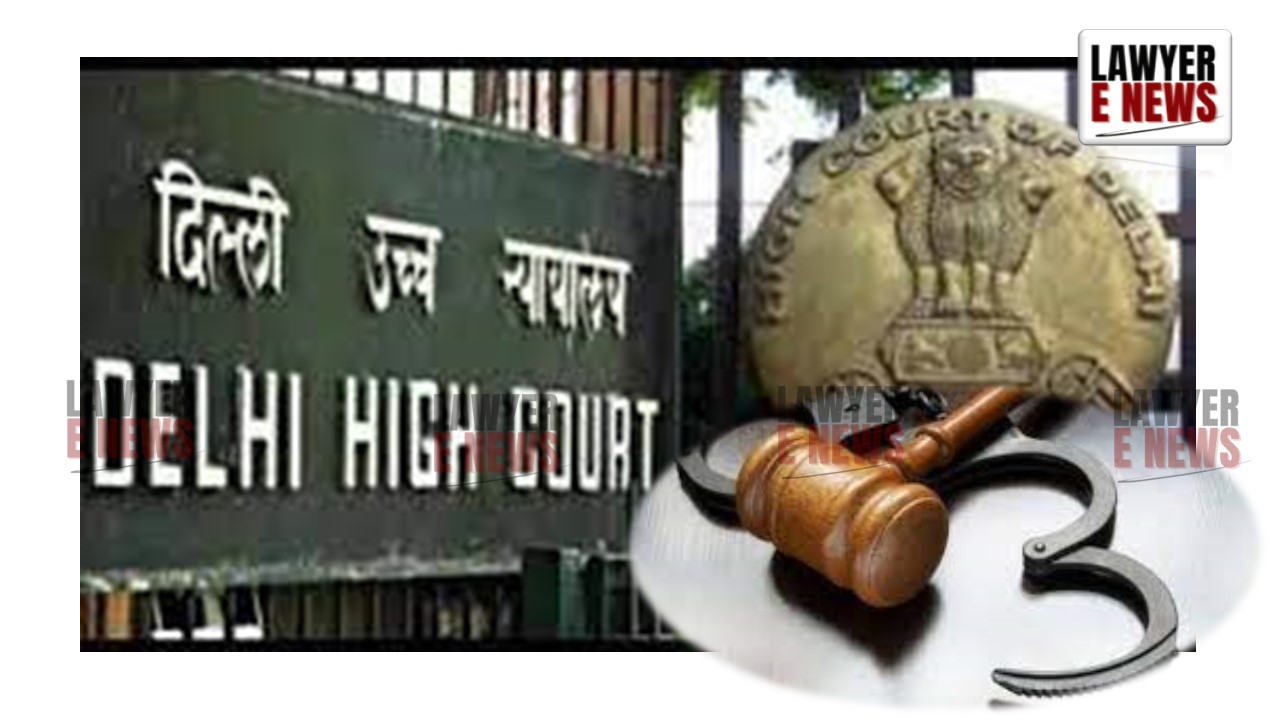-
by Admin
15 February 2026 5:35 AM



Subheadline: Justice Vikas Mahajan emphasizes the need for proper judicial scrutiny before issuing non-bailable warrants and underscores the statutory right to seek anticipatory bail.
The Delhi High Court has quashed the issuance of non-bailable warrants (NBWs) against Lakshay Jaiswal, emphasizing the need for proper judicial scrutiny and application of mind before issuing such warrants. The judgment, delivered by Justice Vikas Mahajan, also highlights the procedural safeguards required under Section 82 of the Code of Criminal Procedure (CrPC) and upholds the petitioner’s right to seek anticipatory bail.
An FIR was lodged against Lakshay Jaiswal on January 31, 2024, for alleged offenses under Sections 354B, 506, and 509 of the Indian Penal Code (IPC). The FIR was filed following complaints by a neighbor, accusing Jaiswal of abusive behavior and physical assault. Notices under Section 41A CrPC were served to Jaiswal’s mother on February 3 and 5, directing Jaiswal to appear for investigation. However, on February 6, the investigating officer sought NBWs, alleging Jaiswal was avoiding the investigation. The Metropolitan Magistrate issued the NBWs the same day, leading to subsequent processes under Sections 82 and 83 CrPC.
Justice Mahajan noted the hasty issuance of NBWs, highlighting that they were issued within a week of the FIR registration and before exhausting less intrusive measures like summons. "Non-bailable warrants should be issued only when summons or bailable warrants are unlikely to achieve the desired result," the court emphasized, citing the Supreme Court's guidelines in Inder Mohan Goswami & Anr. vs. State of Uttaranchal & Ors..
The court found that the orders under Section 82 CrPC, which allows for the proclamation of an absconding accused, were issued without proper reasoning or evidence that Jaiswal was absconding or concealing himself. "The court must record reasons to believe that the accused is absconding before issuing such proclamations," the judgment stated, underscoring the importance of procedural safeguards.
The judgment upheld Jaiswal’s right to seek anticipatory bail under Section 438 CrPC, criticizing the investigating officer's actions as collusive with the complainant to undermine this right. The court granted anticipatory bail to Jaiswal, subject to conditions ensuring his cooperation with the investigation.
Justice Mahajan remarked, "The issuance of non-bailable warrants without proper judicial scrutiny and in aid of investigation is contrary to the mandate of law." He further stated, "The petitioner’s right to seek anticipatory bail, a statutory right designed to protect individual liberty, cannot be set at naught by such hasty actions."
The Delhi High Court's ruling reinforces the importance of procedural fairness and the protection of individual liberty in criminal proceedings. By quashing the NBWs and subsequent orders, the judgment sends a strong message about the judiciary's commitment to upholding the rule of law and safeguarding statutory rights. This decision is expected to impact future cases, ensuring that judicial processes are not misused to undermine the rights of the accused.
Date of Decision: July 18, 2024
